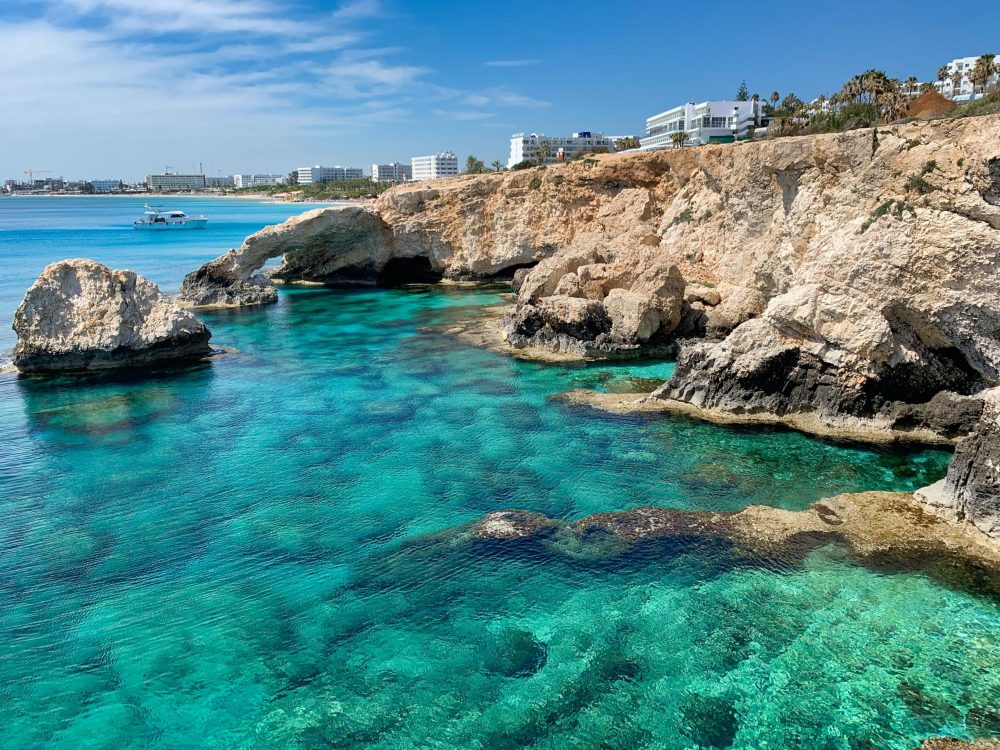Cyprus is a beautiful island nation located in the eastern Mediterranean Sea. With its warm climate, stunning beaches, and rich cultural history, it’s no surprise that many people dream of living in this idyllic location. However, before you pack your bags and make the move, there are a few things you need to know about living in Cyprus. From understanding the local culture and customs to navigating the legal requirements for residency, there are several important factors to consider. In this blog post, we will explore everything you need to know if you want to live in Cyprus, from the practicalities of finding a home and employment to the unique aspects of Cypriot lifestyle and culture. Whether you are planning to move to Cyprus permanently or simply considering a long-term stay, this guide will provide you with all the information you need to make the most of your experience in this beautiful Mediterranean country.
Climate and Environment
Cyprus is known for its Mediterranean climate, with hot, dry summers and mild winters. The island receives an average of 300 days of sunshine per year, making it a popular destination for sun-seekers and outdoor enthusiasts. The island’s diverse landscape includes stunning beaches, rolling hills, and scenic mountains, offering a wide range of outdoor activities such as hiking, swimming, and water sports. However, it’s important to note that the island’s climate can also be challenging at times, with high temperatures and humidity levels in the summer months. Additionally, Cyprus has been facing environmental issues such as water scarcity and deforestation. As a result, the Cypriot government has implemented initiatives to promote sustainable living and protect the natural environment.
Language
The official languages of Cyprus are Greek and Turkish, with English widely spoken as a third language. Greek is the predominant language spoken in the southern part of the island, while Turkish is mainly spoken in the northern part. English is taught in schools from a young age, and most Cypriots are fluent in it, especially in the tourist areas. As a result, it’s relatively easy for English-speaking expats to navigate daily life in Cyprus. However, learning some basic Greek or Turkish can be useful in communicating with locals and immersing oneself in the local culture. Additionally, knowing the language can also be beneficial when it comes to administrative tasks such as dealing with government agencies or opening a bank account. Overall, while it’s possible to get by with just English in Cyprus, learning some Greek or Turkish can enhance the expat experience and help build stronger connections with the local community.
Population
Cyprus has a population of around 1.2 million people, with the majority residing in the southern part of the island. The population is diverse, with Greek Cypriots accounting for around 75% of the population and Turkish Cypriots making up around 10%. There is also a significant expat community, with people from various countries living and working in Cyprus. The island’s strategic location has made it a melting pot of cultures over the centuries, and this diversity is reflected in its population today. As a result, Cyprus is known for its welcoming and hospitable culture, with locals often going out of their way to help newcomers settle in. However, it’s worth noting that the population can be quite transient, with many expats coming and going throughout the year. This can make it challenging to build long-term relationships, but it also offers the opportunity to meet new people from around the world.
Cost Of Living In Cyprus
Overall, the cost of living in Cyprus is generally lower than in other Western European countries, making it an attractive option for expats. However, it’s worth noting that prices can vary significantly depending on the location and lifestyle. A one-bedroom apartment in a city center can cost around €500-€700 per month, while a three-bedroom apartment can cost around €1,000-€1,500 per month. While some expenses, such as housing and food, can be relatively affordable, other expenses such as healthcare and entertainment can add up quickly. As with any move to a new country, it’s essential to do thorough research and plan accordingly to ensure a comfortable and sustainable lifestyle in Cyprus.
Food
Cypriot cuisine is a delicious blend of Mediterranean and Middle Eastern influences, with a strong focus on fresh, local ingredients. Traditional dishes often feature meat, fish, and vegetables, flavored with herbs and spices such as oregano, mint, and cinnamon. Meze, a selection of small plates served as a starter or main course, is a popular way to sample a variety of Cypriot dishes. Some must-try dishes include souvlaki (grilled meat skewers), moussaka (layers of meat, vegetables, and potatoes), and halloumi cheese (a salty, semi-hard cheese). Fresh seafood is also a highlight, with octopus, calamari, and sea bream commonly found on menus. Local wine and beer are also worth trying, with a range of refreshing white and red wines and light, crisp beers available. With its blend of flavors and influences, Cypriot cuisine offers a unique and delicious culinary experience for expats and visitors.
Sightseeing In Cyprus
Cyprus is a beautiful island with a rich history and culture, offering plenty of sightseeing opportunities for expats and visitors alike. The island’s stunning coastline features some of the most picturesque beaches in the Mediterranean, including the famous Fig Tree Bay and Nissi Beach. The island is also home to several ancient sites, such as the Tombs of the Kings in Paphos and the Ancient City of Salamis in Famagusta. Additionally, the island’s traditional villages offer a glimpse into Cypriot rural life, with charming architecture, narrow streets, and quaint tavernas serving up local cuisine. For nature lovers, the Troodos Mountains provide a perfect escape, with hiking trails, traditional mountain villages, and panoramic views. Overall, Cyprus offers a wealth of sights and experiences, providing ample opportunities to explore and discover the island’s unique charm and character.
Which City To Live In?
Choosing which city to live in Cyprus can be a challenging decision, as each location offers a unique lifestyle and set of advantages. Nicosia, the capital city, is a bustling metropolis with a rich history and cultural scene. The city offers a diverse range of housing options, including modern apartments and traditional houses, and is home to several international schools and universities. Limassol, located on the southern coast, is known for its cosmopolitan atmosphere, lively nightlife, and luxury developments. The city has a large expat community, making it an excellent choice for those looking for a more international lifestyle. Paphos, on the western coast, is a popular tourist destination known for its ancient sites and stunning coastline. The city offers a range of affordable housing options, making it an attractive choice for retirees and families. Ultimately, the best city to live in Cyprus depends on your personal preferences and lifestyle needs. It’s worth considering factors such as employment opportunities, cost of living, and proximity to amenities when making a decision.
Limassol
Limassol is the second-largest city in Cyprus and one of the island’s most popular destinations for expats and tourists alike. Located on the southern coast, the city boasts a cosmopolitan atmosphere, with a lively nightlife, luxury developments, and plenty of shopping and dining options. The city’s seafront promenade is a popular spot for jogging, cycling, and leisurely walks, while the nearby marina offers a range of water sports and boating activities. Limassol is also home to several cultural attractions, including the Limassol Castle and the Municipal Gardens, which hosts several festivals and events throughout the year. With its mix of modern amenities, coastal lifestyle, and cultural offerings, Limassol is a great choice for those seeking a dynamic and cosmopolitan city to call home.
Nicossia
Nicosia, the capital of Cyprus, is a vibrant and historic city, with a rich culture and diverse population. The city’s Old Town, surrounded by Venetian walls, is a UNESCO World Heritage site, offering a glimpse into the island’s long and varied history. The area is home to several museums and cultural attractions, including the Cyprus Museum, which houses a vast collection of ancient artifacts, and the Leventis Municipal Museum, which showcases the city’s history and culture. Nicosia is also a hub for business and commerce, with several multinational companies and financial institutions located in the city. The city offers a range of housing options, including modern apartments and traditional houses, as well as several international schools and universities. With its unique blend of history, culture, and business, Nicosia is an excellent choice for those seeking a cosmopolitan lifestyle and a vibrant cultural scene.
Other Cities
Cyprus is home to several other cities that offer a unique and diverse lifestyle. Larnaca, located on the southeastern coast, is known for its beautiful beaches and relaxed atmosphere. The city is home to a bustling harbor and a lively promenade, with plenty of seafood restaurants and cafes. Larnaca also has a rich history, with several ancient sites and museums to explore. Famagusta, located on the eastern coast, is another historic city, with a rich cultural heritage and stunning beaches. The city’s walled Old Town is a UNESCO World Heritage site, featuring several ancient churches and monuments. Additionally, the city is home to several universities, making it a popular choice for students. Other cities, such as Paphos, Ayia Napa, and Protaras, are known for their picturesque beaches, vibrant nightlife, and family-friendly activities. With each city offering a unique blend of culture, history, and lifestyle, there is something for everyone in Cyprus.




